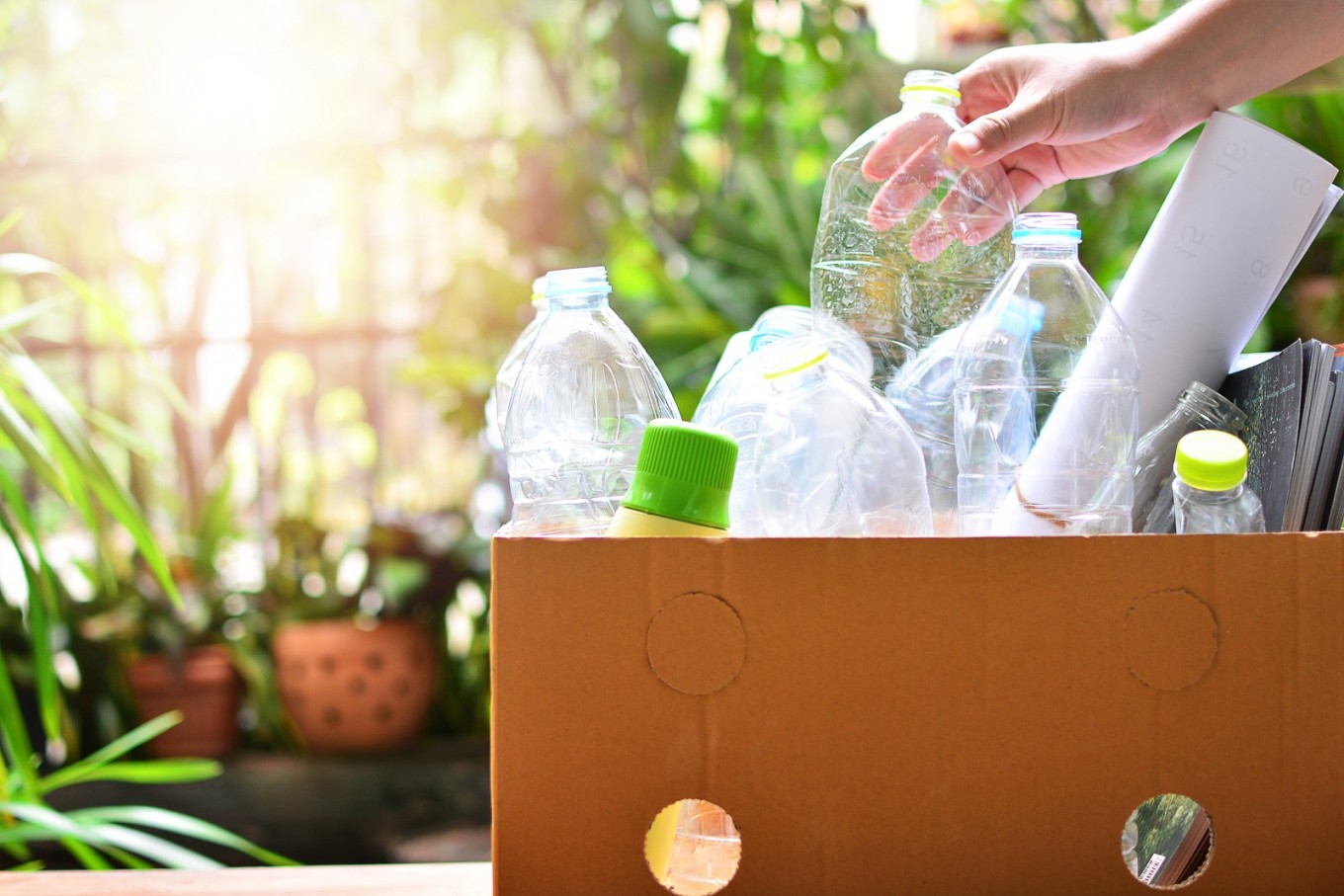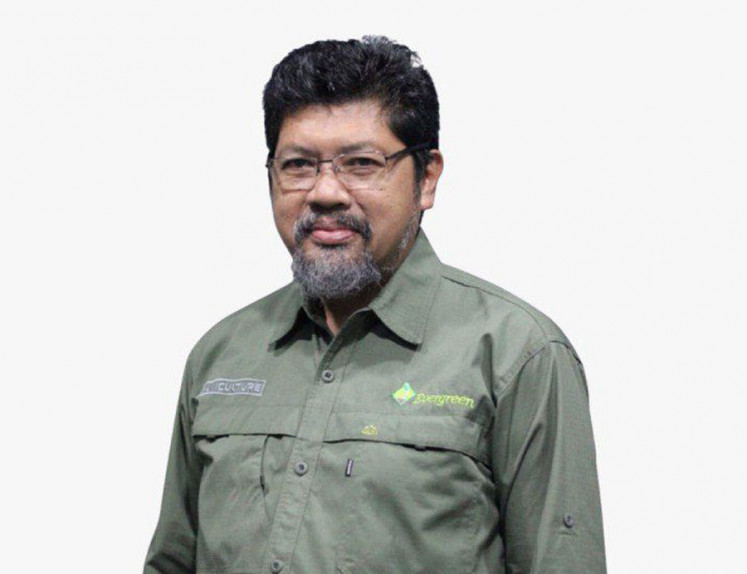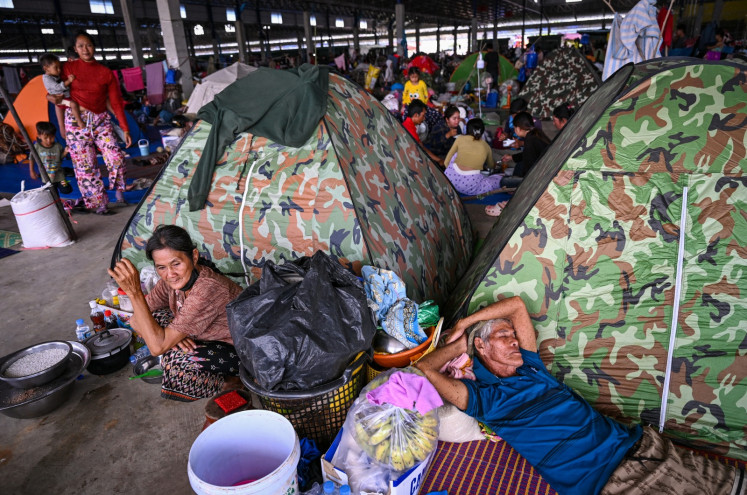Popular Reads
Top Results
Can't find what you're looking for?
View all search resultsPopular Reads
Top Results
Can't find what you're looking for?
View all search resultsHow plastic industry can thrive in the changing market
Road to recovery will vary as petrochemical players experience different impacts from the pandemic. As our recommendation, companies should take measures based on position of urgency and risk to shareholder value – not only for short-term survival, but also to position themselves for long-term success in the new normal.
Change text size
Gift Premium Articles
to Anyone
A
s consumers and industries continue to make changes in response to COVID -19, their adjustments trigger shifts throughout the market. This demand disruption will have layers of repercussions for the polymer industry, which contributed Rp 72 trillion (US$4.9 billion) to Indonesia’s gross domestic product (GDP).
Petrochemical companies also face pressure from price volatility of oil and gas, continued bans on single-use plastics, and growing concern for product safety. The pandemic has already driven some of the sharpest declines in demand for certain plastics, while promoting growth for others.
The impact has been more devastating for end markets as plant utilization in downstream petrochemicals have fallen to 30-40 percent, compared to 90-95 percent in upstream. In the above table, we examine the case of polypropylene plastic and explore how COVID-19 has influenced several areas of its application.
Despite an overall downtrend, the impact of the pandemic varies, depending on the company’s product portfolio and key accounts. For instance, producers of lamination plastics are highly exposed to the crisis. This is observable from its usage for disposable cups and drinking water, which has been severely affected by the large-scale social restrictions (PSBB) as tourism and social event became restrained, causing declines in food and beverage sales of up to 40 percent.
In contrast, fast-moving consumer goods (FMCG) sector has been able to hold up demand in some areas of flexible films. Uptake from instant noodle producers particularly stand out as it is a go-to product for convenient eaters and humanitarian aid during the pandemic. Furthermore, booming e-commerce shipments and online food delivery has been a significant driver for plastic bags.
Nonetheless, flexible film demand remains quite damaged as grocery shopping became limited, especially in traditional markets, which is still a staple of trade activity in Indonesia. Micro, small and medium enterprises (MSMEs) represent 99.99 percent of business units in the country and contribute to 60 percent of national GDP.
Injection molding players face several major threats; most notably, the automotive sector. Most factories have stopped production by the end of the first quarter and upcoming batches are aimed for export. Per May 2020, retail automotive sales have seen a drastic fall of 82 percent, while factory-to-dealer sales have dropped 96 percent.
This has been the worst decline in the sector since the start of the year. Moreover, homeware plastics is disrupted by the lockdown since household appliances rely heavily on store-based channels. Toy producers also face pressure from crippling demand and their increased exposure to the weakening rupiah as around 25 percent of toy parts are imported.
The government health protocol has sustained high demand for hygiene supplies and self-protective products. Polypropylene fiber producers benefit from demand in face masks and personal protective equipment (PPE), while producers in the blow molding portfolio are well-positioned with its uptake for hand sanitizer and disinfectant containers. Despite the transitional phase of the lockdown, which may look to continue the positive trend, players must be alert as an oversupply is on the horizon for this segment.
The Trade Ministry has lifted the export ban on PPE as a surplus has been identified until the end of the year. A saturated export market should also be anticipated, with China leading the way since the cost of fabric for masks in the country has slumped from a minimum of $56,000 per ton to less than $1,500 per ton due to domestic oversupply.
Road to recovery will vary as petrochemical players experience different impacts from the pandemic. As our recommendation, companies should take measures based on position of urgency and risk to shareholder value – not only for short-term survival, but also to position themselves for long-term success in the new normal.
Hence, we propose the following imperatives:
First, respond the now. Ensuring employee health and operational safety should be key priorities in the midst of COVID-19.
Operational permit (IOMKI) requires that factories comply with the health protocol set by the Ministry of Industry.
With the speed of new information, a designated crisis management task force can serve as the enterprise’s first line of response and information center related to the pandemic. Aside from risk mitigation, this function is well-suited to communicate and align stakeholders. Therefore, sound decisions can be taken in optimizing the company’s operating model to ensure cost competitiveness and secure margins during the crisis.
As cost pressure escalates, managing cash flow becomes more crucial. With volatile prices in oil and gas, petrochemical players must actively monitor raw material rates. Current supply chain should be reviewed to identify disruptions and possible shortages caused by COVID-19. Once these key priorities have been addressed, companies can concentrate on consumer-focused moves.
Second, anticipate the next. Future-minded companies stay afloat on regulatory changes and new customer preferences to assure revenue growth. In addition to government stimulus, producers need to be alert for extended responsibilities and new product requirements.
Currently, priorities on product safety outweigh sustainability concerns. Jakarta, which recently imposed the ban of single-use plastics, has reported that the portion of plastics from municipal waste has increased from 16 percent to 34 percent.
COVID-19 has also decimated the demand for recycled plastics, reaching a 75 percent decline. Market assessment is important to help understand demand shifts during the pandemic. The new knowledge can allow companies to mitigate risks by adjusting value proposition, evaluating production flexibility or making changes in existing product portfolio.
A comeback should also be anticipated; hence, companies need to navigate segments that are rebounding in demand. Divestment of underperforming portfolio should also be considered, especially for less strategic assets in the long run.
Third, seize the new. Enterprises with financial and operational resilience during the crisis are well-positioned to be opportunity minded and further rethink their position in the future. With the new normal, it is imperative to develop new product design, specifications, and technology requirements based on updated policies and customer expectations.
Given the limitations in working environment and heightened hygiene concerns, COVID-19 has provided an added incentive to embrace digital transformation. The current automation level in upstream and downstream petrochemicals are at around 80 percent and 50 percent, respectively.
Players should also scan for untapped market opportunities; a potential value chain integration through mergers and acquisitions may be considered.
---
Business analyst at YCP Solidiance










